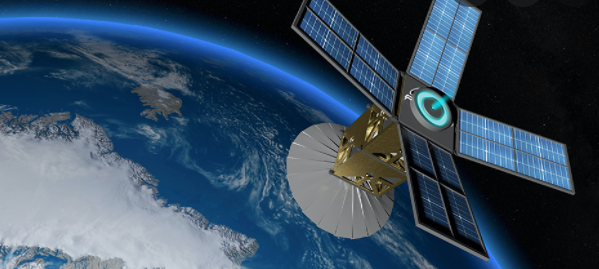US and China need a space hotline for orbital emergencies
At achieving peaceful coexistence with China's growing space program, it may begin with a quick phone call over a new hot line. America must act fast to protect its space assets, find new ways of managing growing space traffic, and bring commercial views into civilian and national security space policy. This is the bottom line from a report by a Council on Foreign Relations-sponsored task force, presented at the Space Foundation's 40th Space Symposium April 7-10 in Colorado Springs. The report titled "Securing Space: A Plan for U. S. Action," states that to remain abreast of the fast-changing space scenario in terms of commercial, technological, and national security issues, the U. S. must accord space central status as a national concern. It also suggests setting up a hotline with China to further reduce the risks of miscommunication or mistakes as both countries continue to militarize space.
Esther Brimmer, a senior fellow at the Council on Foreign Relations (CFR), said that the task force recommended a seven-point plan to help U.S. policymakers rethink their plans to maintain leadership in space. She added that nobody can be in charge of space, but coordination with current institutions is possible. The CFR is an impartial think tank committed to providing relevant policy suggestions and analysis for significant issues facing the U. S. and the globe. The Co-chair of the CFR report, Retired U. S. Space Force Lieutenant General Nina Armagno, explained that this is the initial time the Council has addressed space issues. She indicated that the space economy is growing rapidly with many booster launches across the world, leading to increased congestion and debris, among other hazards posed by countries like Russia and China.
However, she stated that there are no regulations for space activities yet, and one wonders whether anyone cares. The report is directed to the Trump administration since it aims at declaring space as a national priority. If adequate funding is spent on this goal, it would indicate the administration is willing to entertain these issues. The CFR report acknowledges China's ongoing presence in space and calls for consideration to be given to the necessity to sharpen U.S. policy towards China, not just a "China bad" perspective. But China is preparing for potential space conflicts, stressing that it must operate in partnership but taking into account prevailing geopolitical tensions. Two of the suggestions in the CFR report are the establishment of a hotline and the enhancement of search and rescue. The hotline would function in a comparable way to one already with Russia, with direct communication in emergency situations. The report similarly discusses the necessity of worldwide cooperation for the rescue of astronauts in space, much of which remains untreated. Samuel Visner of the Space Information Sharing and Analysis Center spoke to the growing commercial space sector and its implications for U. S. national security. He emphasized that the private sector plays a critical role in ensuring technological and economic security and that failure to support it could undercut the U. S. and its allied nations. Commercial space systems are, nonetheless, seen as targets by adversaries as well. Visner referenced an attack on Ukrainian space systems through cyber as one example of this vulnerability, adding that commercial space systems are considered valid military targets by Russia in its wars. That reality puts the U. S. under pressure to protect commercial space activities from potential attack by adversaries like Russia.
Reference
Leonard David US and China need a space hotline for orbital emergencies, experts say. Space.com
Available at- https://www.space.com/space-exploration/launches-spacecraft/us-and-china-need-a-space-hotline-for-orbital-emergencies-experts-say
(Assessed: 19th May 2025)







